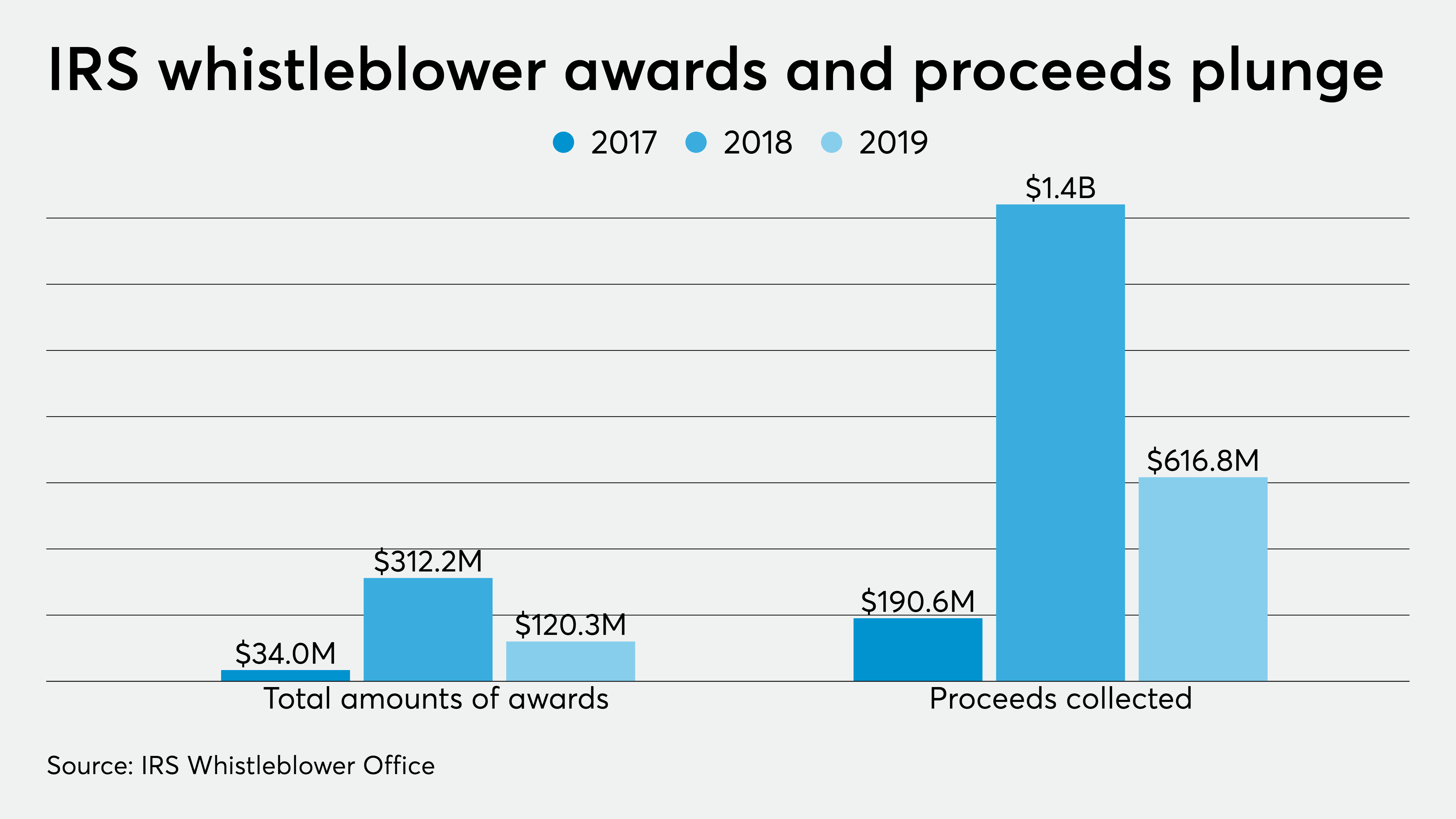The Internal Revenue Service’s Whistleblower Office made 181 awards to whistleblowers in fiscal year 2019, totaling over $120 million, according to a new report, and collected more than $616 million thanks to the tips it received, but both those numbers represented a sharp drop compared to the previous year.
The IRS Whistleblower Office released its annual report to Congress last week, presenting the results of another year of big changes at the agency. The Whistleblower Office made 181 awards to whistleblowers during the fiscal year totaling $120,305,278, but that was down by more than half from the more than $312 million awarded in fiscal year 2018. The proceeds collected in fiscal 2019 totaled $616,773,127, but that was less than half of the $1.44 billion collected in fiscal 2018. However, the figures did represent an improvement over fiscal 2017, when the total amounts of awards were $33,979,873, and the proceeds collected were $190,583,750.
The total number of awards also declined, from 217 to 181, although the total number of claims related to awards rose from 423 to 510. Whistleblower claim numbers assigned in FY 2019 decreased by 7.3 percent from those submitted in FY 2018, and closures increased by 29.8 percent. The number of awards as a percentage of proceeds collected also declined, from 21.7 percent to 19.5 percent.
Some significant changes are underway in the IRS Whistleblower Office after the passage by Congress last year of the Taxpayer First Act, a wide-ranging set of reforms in the way the IRS operates. Under the new law, the Whistleblower Office is supposed to now disclose to tipsters whether the information they provided the IRS has been referred for audit or examination, and whether a tax payment was made with respect to an issue raised by the whistleblower. After receiving a written request, the IRS is supposed to provide an update to the whistleblower on the status and stage of any investigation or action related to the tip, and in the case of a determination of the amount of any award, the reason for that determination. The new law also contains some anti-retaliation protections for whistleblowers. The IRS Whistleblower Office underwent earlier changes last year in response to some provisions in the Bipartisan Budget Act of 2018.
“For a second year in a row, statutory changes have resulted in massive operational changes for the Whistleblower Office and to the Whistleblower Program,” wrote Lee D. Martin, director of the Whistleblower Office, in the introduction to the report. He noted that the Taxpayer First Act “would help improve taxpayer service, ensure the continual enforcement of the tax laws in a fair and impartial manner, and ultimately support the continued success of our nation. The new law also extends greater employment protections for whistleblowers against retaliation.”